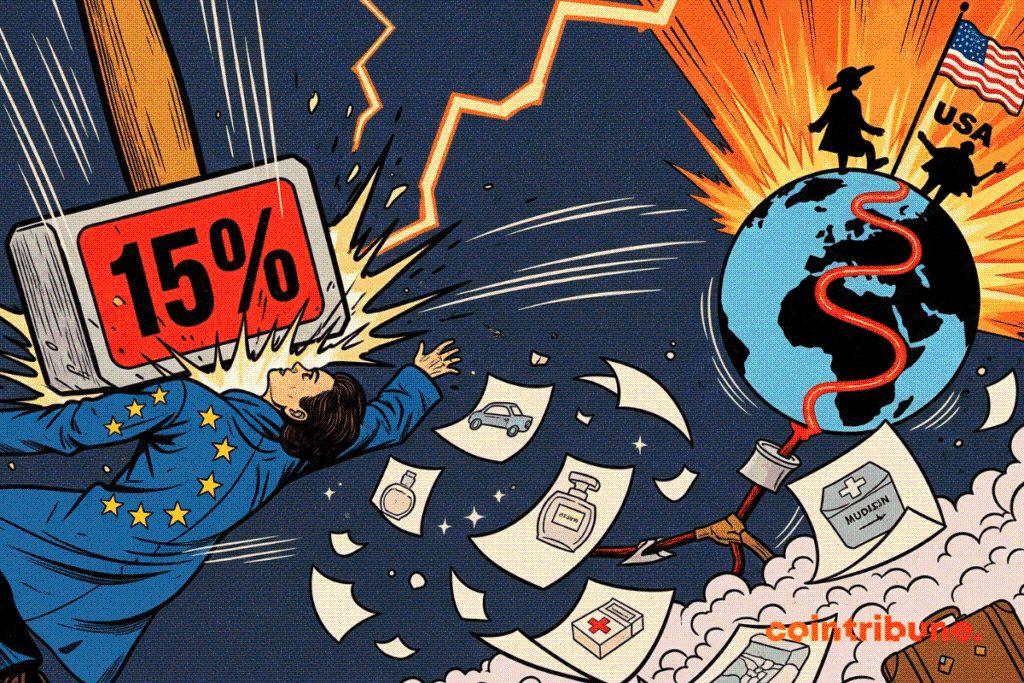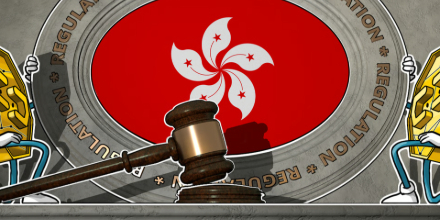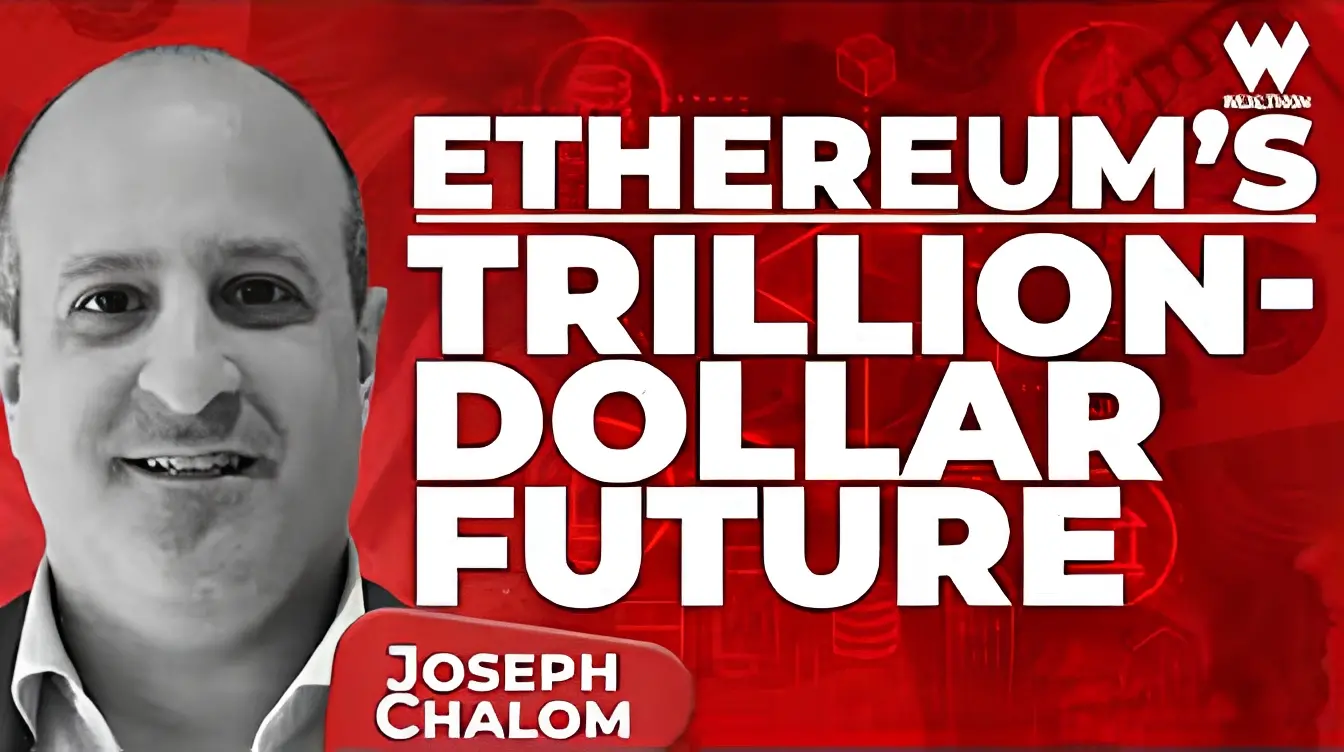A Turning Point for the Global Economy: What the EU–US Customs Deal Really Means
The European Union and Donald Trump have just signed a historic — yet controversial — agreement. Its stated goal: to redefine transatlantic trade. But behind the official announcement, the entire European economy is shaking. All the details below.

In Brief
- Trump imposes a 15% tax on key sectors of the European economy.
- The EU commits to purchasing 750 billion dollars of American energy, weakening its economic sovereignty.
A European economy hit at the heart of its strategic sectors
Sunday, July 28, the so-called Turnberry Agreement imposes a 15% tax on a wide range of European products exported to the United States . More explicitly, this protectionist turn directly affects strategic sectors such as:
- automotive,
- luxury,
- pharmaceuticals,
- cosmetics.
For example, German manufacturers will now face a 15% customs duty — a change from the 27.5% tariffs they’ve been subject to since April. In the luxury sector, LVMH and Kering are trying to offset the impact by relocating part of their production to the U.S. However, wine and spirits exports remain in a grey area, with no clear resolution in sight. These sectors account for €8 billion in annual exports.
An agreement with vague outlines but massive impact
The transatlantic economy is also shaken by the EU ‘s commitment to purchase 750 billion dollars of fossil fuels, including American shale gas. These promises, which are difficult for the European Commission to implement, risk worsening the trade balance. But not only that! They could also contradict climate goals, as highlighted by the agreement concluded between Ursula von der Leyen and Donald Trump on tariffs.
Another sensitive point: the end of customs exemption for medicines, which alone represent 22.5% of European exports. For many observers, this is a ticking time bomb for European trade policy.
In total, between forced imports, sectoral taxation, and industrial reorientations, this agreement ushers the European economy into a new era of strategic dependence.
One thing remains certain: the agreement between Donald Trump and the European Union illustrates a profound reshaping of the global economy. It is clear that international trade is now played on unequal terms.
Disclaimer: The content of this article solely reflects the author's opinion and does not represent the platform in any capacity. This article is not intended to serve as a reference for making investment decisions.
You may also like
How to achieve 220x returns with a market-making bot on Hyperliquid?
For every $1,000 traded, a rebate of $0.03 is earned. It is precisely this seemingly small rebate that enabled the trader to grow from $6,800 to $1.5 million.

Korea's leading RWA project Piggycell, Piggy Night live event demonstrates popularity: Establishing a "usage-driven RWA" paradigm through data and accountability
Heavy rain can't dampen the enthusiasm.

CRP-1 Arrives: A Comprehensive Analysis of Hong Kong's New Crypto Asset Regulations, Reshaping the Crypto Landscape
The Hong Kong Monetary Authority has released a consultation paper, CRP-1 "Crypto Asset Classification," aiming to establish a regulatory framework that balances innovation and risk control. The paper clarifies the definition and classification of crypto assets, as well as regulatory requirements for financial institutions, aligning with international standards set by the BCBS. Summary generated by Mars AI. The accuracy and completeness of this summary, generated by the Mars AI model, are still in the process of iterative improvement.

Former BlackRock Executive Joseph Chalom: Why Ethereum Will Reshape Global Finance
Could Ethereum become one of the most strategic assets of the next decade? Why do DATs offer a smarter, higher-yield, and more transparent way to invest in Ethereum?

